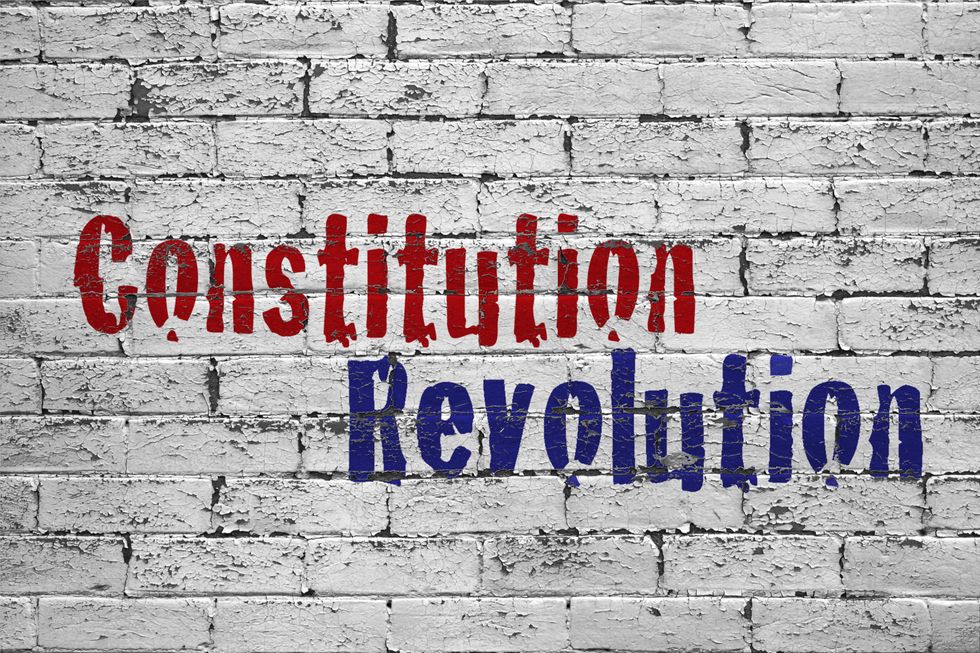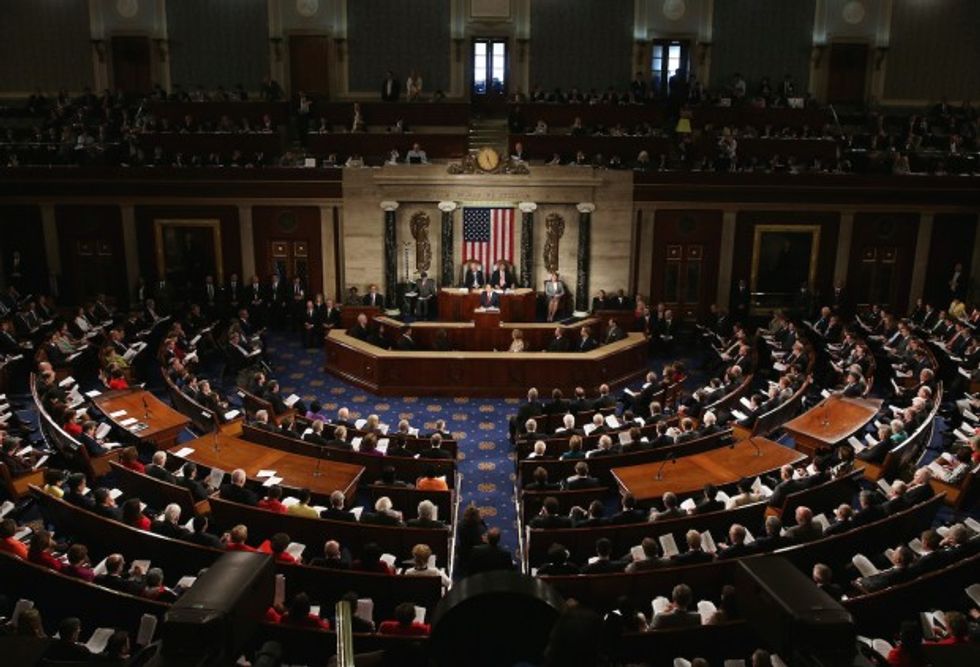
Photo Courtesy of Author.

This story was updated.
-
Before we get into the lawmaking process that is found in Article 1, Section 7, let’s take a little detour and talk about the process we have for buying new cars.
In the standard system for selling new cars, you have a manufacturer who builds the car and sells that car to a dealer. The dealer then turns around and sells that car to a customer like you or me. It’s a fairly simple system; and for the most part it works very well.
Under that system all three of the people who are involved in the transaction have a voice in the process. Because of that, they can all look out for their own interests. Unless the manufacturer, the dealer, and the customer all agree that the price that the car is being bought and sold for is fair to them, the deal doesn’t go through.
 (Photo by Kevork Djansezian/Getty Images)
(Photo by Kevork Djansezian/Getty Images)
But imagine what would happen if somehow the manufacturer and the customer were able to get together and take away the dealer’s voice in the process. In other words, the manufacturer could say what kind of car it wanted to sell and for how much, and the customer was able to say what kind of car he was willing to buy and for how much.
Meanwhile, the dealer just had to sit there and accept whatever agreement the other two came to.
How do you think that would turn out for the dealers?
It’s not hard to figure out that when the dealer doesn’t have a voice in the process, the other two people are going to take advantage of him. The manufacturer is going to tell the dealer to buy the car at an unreasonably high price and the customer is going to expect the dealer to sell the car at an unreasonably low price. Put all that together and the dealer is probably going to go out of business before too long.
With that in mind, let’s look at Article 1, Section 7. In some ways, the process for how a bill becomes a law in this country is very similar to the process we have for buying new cars.
Each of the entities that is affected by the laws that our federal government passes was supposed to have a voice in the process - the people, the states, and the federal government.
At the beginning, the House of Representatives would see a bill from the perspective of the people and the Senate would see it from the perspective of the States.
As James Madison explained, unless the representatives of the States and the people both thought a bill was fair to them, it wouldn’t pass:
“Another advantage accruing from this ingredient in the constitution of the Senate is the additional impediment it must prove against improper acts of legislation. No law or resolution can now be passed without a concurrence, first, of a majority of the people, and then a majority of the states...”
After a bill has been approved, it moves on to the president who would evaluate it from the perspective of the country as a whole. (If you’d like to see an explanation of why the president would be motivated to evaluate a bill in that way, click here.)
If the president believes the bill is fair to the federal government, he can sign it. Otherwise, he can veto it and send it back to Congress.
Just like with the process for buying a new car, in the original system for creating laws under our Constitution all three entities that are affected by federal policies had a voice in the process (although, as we discussed last week the president’s voice is definitely the weakest). The citizens, the states, and the federal government all had someone in Washington, D.C. who was protecting their interests.
But in 1913, we ratified the 17th Amendment which says that our Senators would be elected by the people and not by the states. That amendment stripped the States of their voice in the lawmaking process. Now, the people are able to get together with the federal government to make whatever rules they want while the states are forced to sit on the sideline and accept the laws that are imposed on them.
Just like we would expect the car manufacturer and the customer to gang up on a voiceless dealer, we should expect the people and the federal government to do the exact same thing to the now voiceless states. And that is exactly what has happened.
In this situation, the people and the federal government are able to get together and make rules that the States have to follow. That’s what happened with Obamacare. Our federal politicians told the States that they are going to have to expand their Medicaid programs whether they like it or not.

And what if the States can’t afford to expand Medicaid? Well, that’s their problem.
As you might expect, that arrangement isn’t turning our well for the states.
Since the States lost their voice in Congress, the federal government has taken so much of their power that they no longer play any significant role in this country. Stop and think about it for a moment. Can you think of one area of government that is exclusively handled by the states where the federal government plays no role at all?
The states were intended to be a major part of limiting the power of the federal government. But now that the States have been rendered virtually powerless, the federal government has been able to grow without opposition - destroying a huge amount of our freedom in the process.
It’s easy to see that if one party in the car buying process doesn’t have any say in the price, that person is going to get taken advantage of. The exact same thing happens in government.
So it shouldn’t come as a surprise to see that our States—who no longer have a voice in Washington, D.C.—are essentially being put out of business. That’s a major problem.
The states are a critical part of making our system of government work properly. Without strong states around to do the important job of limiting the power of our federal government, we can expect to see our federal politicians to continue to get further and further out of control—and destroy more and more of our freedom.
Chad Kent is an author and speaker with a unique style that makes the Constitution simple and fun. Listen to Chad every Saturday during The Chris Salcedo Show on TheBlaze Radio, visit his web site at www.ChadKentSpeaks.com, and like his Facebook page at www.facebook.com/theconstitutionguy.
–
TheBlaze contributor channel supports an open discourse on a range of views. The opinions expressed in this channel are solely those of each individual author.